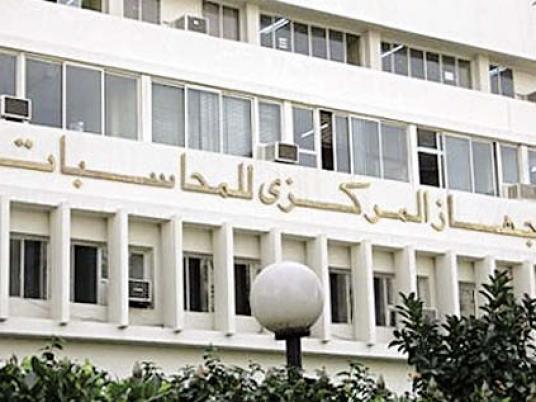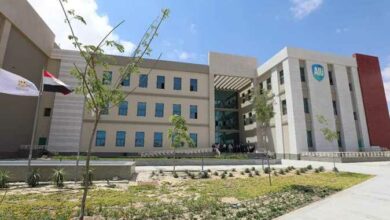
The Coptic community was angered earlier this year when General Abou Bakr al-Guindy, the head of the Central Agency for Public Mobilization and Statistics (CAPMAS), claimed there were only 5.7 million Copts in Egypt.
They argue the number is much higher, and that this information — published by the country’s only official data keeper — is politicized.
Guindy’s response revealed rather a dysfunctional information system. In an official statement, he said the number was based on the last census in which respondents were obliged to identify their religion — which was conducted in 1986.
After that, the United Nations said forcing citizens to declare their religion in the census was discriminatory and should not be enforced, Guindy said.
The debate raised concerns over the functions of CAPMAS as the official gatekeeper for information and statistics, the way information is collected, analyzed and released, and the way the agency engages with other information vehicles.
CAPMAS: The history
Established in 1964, CAPMAS was created by a highly centralized regime and was under the direct supervision of the president, according to Law 2915/1964.
Article 10 of the law stipulates: “Ministries, state institutions, government workers and the private sector are not allowed to publish, by any means of publishing or media, any documents, results, data or statistical information except for those by CAPMAS.”
In 1968, a wide ban was issued on publishing statistics in newspapers, magazines or any other publication. Another decree was imposed later that same year to further ban publishing the results of opinion polls without prior permission.
The agency also created central statistics units in all ministries and state institutions to collect all information and statistics pertaining to these institutions, and then send them to CAPMAS for publishing.
NGOs, polling centers and all privately owned research institutions had to acquire permission from CAPMAS if they wanted to collect any information that was not published by the agency.
According to a case study released by the Association of Freedom of Thought and Expression (AFTE) in 2012, the agency’s philosophy and modes of operating did not keep pace with the changing political identity of the ruling regime in the 1970s, which adopted wide scale economic and social liberalization.
In 1981, state policy tended toward decentralizing Egypt’s information system with Presidential Decree 627, which established information and documentation centers in all state institutions. The Mubarak regime then established the Information and Decision Support Center (IDSC) in 1992.
The contradiction between the mandate of CAPMAS and other information centers affiliated with different state institutions was clear. While legally CAPMAS is the only institution entitled to collect and publish statistics and information, other government institutions were now doing the same job CAPMAS had been doing for decades.
CAPMAS now practices its authoritarian rule only over civil society and non-state actors.
CAPMAS and the private sector
In an interview with Egypt Independent, Guindy denies any limitations imposed on private sector and civil society organizations engaged in producing information. Restrictions only exist to ensure that information released by these institutions are correct and follow the standardized style guide set by international statistical organizations, he adds.
Any private entity aiming to conduct an opinion poll must submit an application to request permission, as well as a sample of the poll. Sometimes CAPMAS rejects only some of the questions, while in other cases the whole questionnaire may be rejected.
“In one of the samples presented to us, respondents were supposed to answer some very sensitive questions. One of the questions asked adolescents about their sexual life,” Guindy says.
“Imagine that a stranger came to your house to ask your 16-year-old sister whether she ever had sex. How can we accept this? Some of these questions do not suit the moral conduct of our families, which should be preserved. We cannot give permission to such polls,” he adds.
But Hana Girguis, the head of the operations committee in the Egyptian Center for Public Opinion Research (Baseera), believes the issue runs deeper than just preserving the morals of Egyptian society.
“We easily get permission for our opinion polls as long as we steer away from politically sensitive issues like the army, military rule and religion,” Girguis says.
The state claims that security is also a concern. But rather than dealing with information as a threat to security, it should be seen as a solution to many problems, says Girguis.
“We need to know the number of Copts to help issue a unified law for building houses of worship, and we need to release information regarding the rates of proliferation for many diseases, which are all blocked, either for political or security reasons,” she adds.
But Guindy denies that CAPMAS’ work is hindered by security concerns.
He believes instead that some issues are very hard to research, like human rights, religious discrimination and corruption, as certain indicators and standards are needed to make these issues measurable. Internationally, he argues, statistics experts managed to quantify these issues, whereas locally, these issues are relatively new.
But Roaa Gharib, researcher at the Right to Knowledge Program with AFTE, argues that the information monopoly of CAPMAS should end, by “allowing more flexibility to civil society organizations to issue other statistics.” CAPMAS’ role can be limited to making sure that released statistics abide by international standards, she argues.
Working with the public sector
One of the major issues confronting CAPMAS is its contentious relationship with other state institutions.
The documentation centers of state institutions and the IDSC are directly supervised by the Cabinet, and produce the same information that CAPMAS provides.
IDSC, for example, prepares the national plan and the state’s strategy in the information sector, which directly overlaps with the role CAPMAS plays.
“As we all know, two institutions will never produce the same numbers. IDSC produces information that contradicts information released by CAPMAS, as well as other ministries,” Guindy complains.
“Big dinosaurs like the ministers of finance, economy and international cooperation find it embarrassing to fall under the supervision of CAPMAS, so they publish their own information which often is not accurate, because they are not subject to the scientific standards that CAPMAS usually follows,” he adds.
For Guindy, this leads to more inaccurate information released by different institutions, which causes further confusion.
“What we are calling for is to unify the system of publishing information in Egypt. Every ministry and state institution can freely use its own information, but CAPMAS should be the only institution entitled to publish it,” he says.
This problem of contradictory information is highlighted by an IDSC study released in 2006 that divided state institutions that produce information into three levels: macro, sectorial and local (governorate) levels.
On the macro level, the study argues, CAPMAS, IDSC, the Egyptian Central Bank, the Ministry of Economic Development and the Ministry of Finance all produce and publish statistics and information. The rest of the ministries lie at the sectorial level, while the governorate level includes the Ministry of Local Development, information centers across governorates and, most importantly, the governorate branches of CAPMAS.
But these branches are embedded in public institutions located in governorates, which potentially means that those who work there are monitored, promoted and sanctioned by these institutions and not CAPMAS. The study argued that this endangers their independence and the quality of information they provide.
Meanwhile, the state’s strategy of directing the nation’s information system does not fit the legal structure, which is designed specifically for CAPMAS. The structure also does not meet society’s needs.
“All international statistical information [bodies] have recommended establishing a well-defined state strategy to organize the information system in Egypt; unfortunately, we lack this unified strategy. During Mubarak’s time, there was not the political will to design it. Now, I do not think that it is a priority of the current regime,” Guindy says.
To that end, Gharib explains that legislative reform is needed to address the statistical system. “This will never happen without real dialogue with civil society organizations, experts and researchers to develop a system that corresponds to the needs of Egyptian society,” she says. “We prefer the system to remain centralized in CAPMAS, until the state’s administrative system becomes more dependent on a strong municipal system.”
Gharib also stressed the importance of CAPMAS’ independence from Egypt’s political leadership.
AFTE, alongside other organizations, have been pushing for an information law that stipulates both the obligation to produce information through clearly defined mechanisms and make it easily accessible. But the dissolution of Parliament last summer delayed this conversation.
This piece was originally published in Egypt Independent's weekly print edition.




